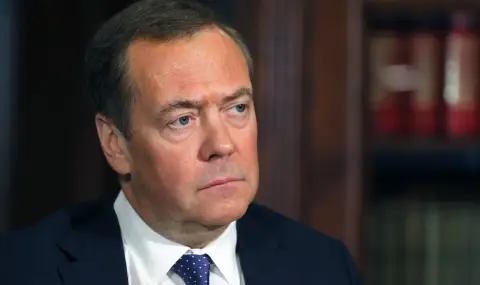Dmitry Medvedev, Russia's deputy chairman of the Security Council, issued a warning to Poland, hinting at dire consequences in response to discussions about nuclear weapons, reports Bulgaria ON AIR.
The spark for this fiery exchange was ignited by Polish Foreign Minister Radoslaw Szykorski's comments to the Guardian. Shikorski shared insights on what he believes to be the US position on Russia's potential use of nuclear weapons against Ukraine. According to him, the US had a clear message: any nuclear aggression will be met with massive conventional firepower against Russian targets in Ukraine.
However, Medvedev countered by suggesting that the US had not made such claims, underscoring the seriousness of such actions, potentially leading to a global conflict. He pointed out the recklessness of even suggesting a scenario in which the US would strike Russian targets, underscoring the catastrophic consequences this could have globally.
Intensifying tensions, Polish President Andrzej Duda's request for US tactical nuclear weapons to be stationed in Poland as a deterrent against Russian aggression was met with a sharp warning from Medvedev. He said such moves would only ensure Poland's inclusion in accepting “radioactive ash”, questioning whether this was really the outcome Poland wanted.
Dmitry Medvedev's transformation from a figure associated with Russian liberal politics during his presidency (2008-2012) to a staunch defender of the war in Ukraine marks a significant shift. His recent statements and social media posts reflect a hardened stance, contributing to escalating rhetoric and tensions between Russia and its neighbors.
As the situation unfolds, the international community is watching closely, hoping for a resolution that avoids the disastrous results implied in these exchanges. The balance between deterrence and diplomacy remains as delicate as ever, with the stakes inexplicably high.
